People & Operations
Established in 1846, the Smithsonian is an independent trust instrumentality of the United States. Just under two-thirds of its annual budget, supporting day-to-day operations and physical infrastructure, is funded through federal government appropriations. The rest comes from private funds such as gifts, grants, research contracts, and business operations revenues. Smithsonian assets include a talented workforce of diverse employees, volunteers, interns, and fellows and an extraordinary portfolio of facilities in Washington, D.C., and beyond.
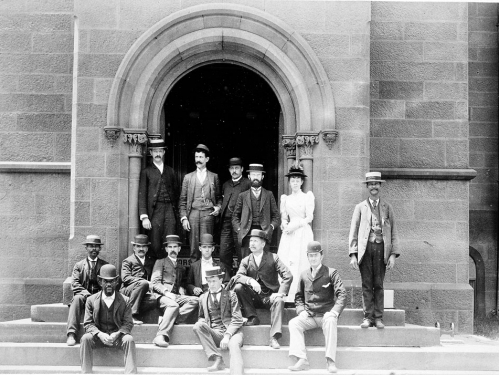
Slightly less than two thirds of Smithsonian staff are federal employees. The rest are non-federal (“trust”) employees and Panamanian employees working under local labor laws for the Smithsonian Tropical Research Institute in Panama. The range of job types is immense: researchers, educators, collections managers, exhibition developers, administrative support staff, facilities and security personnel, and many more. The Smithsonian seeks to attract a creative workforce that is representative of America's diversity, including individuals with disabilities. Employees consistently rank the Smithsonian as one of the "Best Places to Work” among midsize federal agencies. For information about careers at the Smithsonian, visit the Smithsonian Office of Human Resources online.
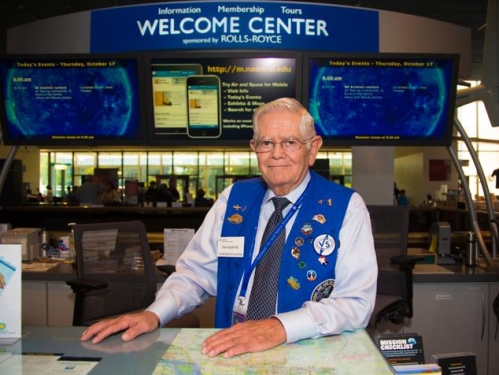
Thousands of volunteers contribute to the Smithsonian's mission. Onsite volunteers provide information to museum visitors, lead exhibition tours, assist in the care of collections, and contribute to research. Digital volunteers for the Smithsonian Transcription Center work remotely, supporting curators and collections managers by transcribing digitized images of historic documents and records of natural history specimens.
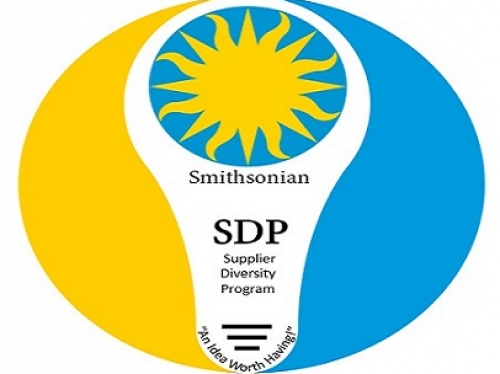
The Smithsonian values the American entrepreneurial spirit and believes variety among its suppliers enhances the quality of its programs and services. To serve these values, it tracks contract and procurement dollars going to small businesses. In doing so, the Smithsonian helps to build, cultivate, and support the small business community. Learn more about doing business with the Smithsonian.
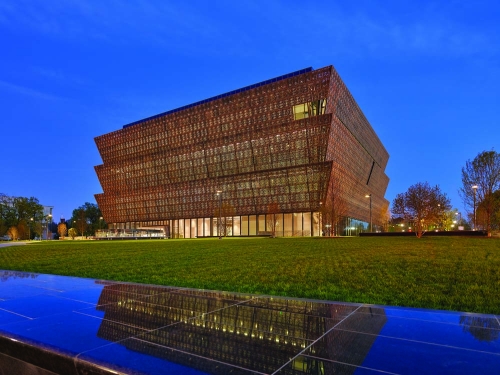
The Smithsonian has a wide variety of facilities throughout the United States and Central America. Buildings on and around the National Mall in Washington, D.C., range from 19th century landmarks such as the Arts and Industries Building and the iconic Smithsonian Castle to state-of-the-art museums constructed in the 21st century. Scientific facilities include tropical research stations in Panama, an environmental research complex on the Chesapeake Bay in Maryland, a conservation biology campus in Virginia, and telescope arrays in Arizona and Hawaii. An expert staff manages the Institution’s complex facilities requirements, including care of fragile collections, support for critical scientific research, hosting millions of visitors, and maintaining historic infrastructure.
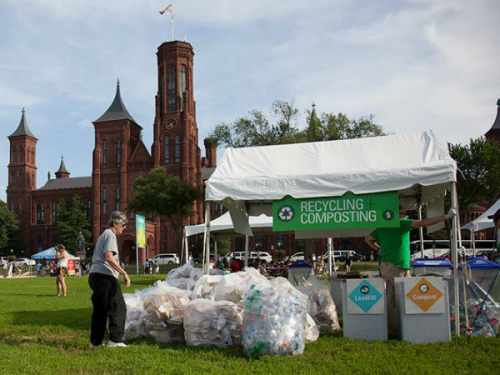
The Smithsonian is committed to environmental preservation and considers sustainable design and operations to be integral parts of its mission. It is on track to meet its goals for greenhouse gas emissions, has steadily improved its recycling and composting rate to divert non-hazardous waste from landfills, and continues to reduce its energy intensity use (EIU) despite the challenge of facilities that operate 24/7. The Institution is also focused on obtaining Leadership in Energy and Environmental Design (LEED) certification from the U.S. Green Building Council for both existing and new facilities. New facilities to receive LEED certification in recent years include the Smithsonian Tropical Research Institute’s Gamboa Research Laboratory in Panama and the Smithsonian’s newest museum, the National Museum of African American History and Culture.

Congress appropriates federal funds for the Smithsonian in two main categories: operations and building renovation/construction. Operations funds support federal staff salaries, rent and utilities, facilities maintenance, collections care, and central administrative services such as security and information technology. Building renovation/construction funds support the planning, design, and construction of new facilities and the revitalization of existing physical infrastructure. Private (“trust”) funds support both capital projects and current operations in areas such as research, exhibitions, and education. These funds include restricted and unrestricted private gifts, payouts from the Institution’s endowment, revenue from grants and contracts, Smithsonian Enterprises business revenues, and memberships.
ODT/OCIO
